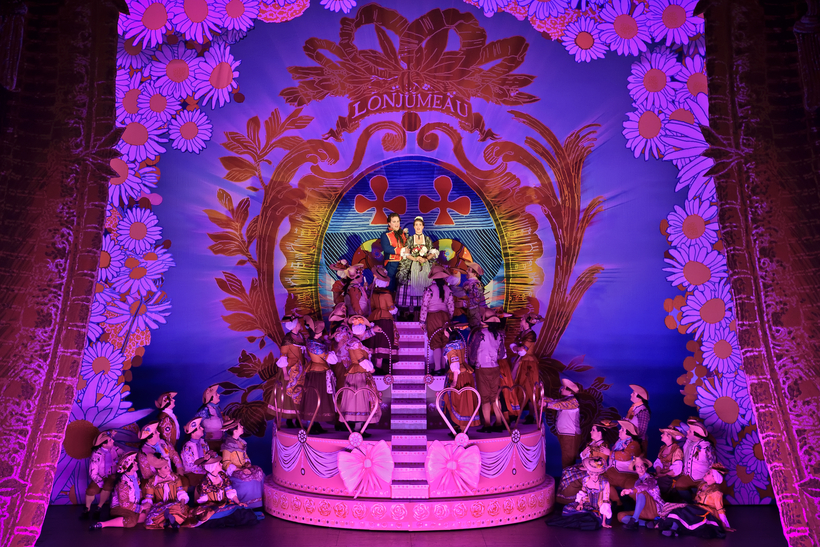Does opera get any frothier than Le Postillon de Lonjumeau? Absolutely not. (By comparison The Daughter of the Regiment plays like The Trojan Women.) Tragedy of a sort strikes when a roving talent scout for the king overhears a country bumpkin—the eponymous postillon, or driver of the mail coach—casually knock off a high D and whisks him to stardom in Paris faster than Alice’s White Rabbit, no time even to say hello, goodbye, not even to the newlywed Mrs. Coachman! (They’re late, they’re late, they’re late!) Fade out, fade in 10 years later, when the misinformed divo unwittingly remarries his own wife, who has come into a fortune. Oops! Bigamy is a capital offense.
What floats the opera’s boat is the fairy dust scattered in abundance by Adolphe Adam, the composer best remembered for Giselle, that paragon of the romantic ballet. As dance lovers know, Adam simply did not have the chip for tunes that were not infectious. Whether the moment calls for sweet talk, heartache, frivolity, suspense, or even terror, he has melodies spilling from both sleeves.
Apart from a daffy poetic sensibility, the protagonist needs crackerjack technique. The range he covers, top to bottom, is vertiginous. His runs, trills, and other embellishments put Mozart’s Queen of the Night to shame. Le Postillon de Lonjumeau was long popular all across Europe, even in the provinces—but how many tenors were ever able to deliver to an international standard all that the role demands? Make of this what you will: the Metropolitan Opera never staged the piece at all, though not so long ago, it might have. That would have been after the Royal Swedish Opera in Stockholm threw a 20-something nobody named Nicolai Gedda into the title role, precipitating an international sensation. Presto! Next thing Gedda knew, he was recording with Karajan and signing autographs at the stage doors of the world’s top houses—and nowhere more frequently than at the Met.

These days, only antiquarians remember Adam’s wild and crazy confection. Preserved on video, the Paris revival of 2019 by the Opéra Comique (which introduced the work in 1836) was the company’s first in 125 years. And the ebullient Michael Spyres, firing on all cylinders in the title role, proceeded simply to crush it. Don’t let me count the ways. We’d be here all night.
The production is lighter than air. Candy-box décor by Emmanuel Charles furnishes dizzying fantasy backdrops for the drop-dead costumes by Christian Lacroix, who dresses even the peasant chorus in couture. As the coachman’s country bride in her ivory-and-chestnut Sunday best, all stripes and plaid and brocade and ribbons and bows, the delectable Florie Valiquette is a fashion plate come to life. Glammed up for Versailles, she dazzles in yard upon yard of raspberry silk, dripping jewels and lace and balancing a platinum coiffure that kites her stature by a good two feet.
Kudos where kudos is due: hair and makeup are credited to Pascale Fau, the sister of the director Michel Fau, who proves a deadpan stylist, and not only behind the scenes. In Act Two, he steps out as the leading lady’s lady’s maid, her stout funhouse double, mimicking Madame’s every fashion statement, from the dress and the wig right down to the beauty spots placed just so. Harvey Fierstein, eat your heart out.
Le Postillon de Lonjumeau is available for streaming on medici.tv
Matthew Gurewitsch writes about opera and classical music for AIR MAIL. He lives in Hawaii

